AJANATA LALIT KALA AVAM SAMAJ KALYAN SAMITI , VIDISHA (.M.P.)
![]()

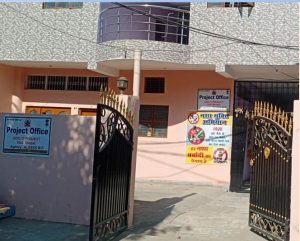


Acknowledgment
At the outset we extend our sincere thanks to Mr.virendra Mishra sir Director NISD,New Delhi and Mr.Sijo Goerge Programme managment Unit.NISD , Mr.Pateriya sir ,Joint Directore Social Justice ,Bhopal M.P.
Mrs.Indira Sharma and Mr.Ved Prakash Sharma the poineear of AJANATA LALIT KALA AVM SAMAJ KALYAN SAMITI,VIDISHA M.P. for providing us (ODIC-TI STAFF) the opportunity to implement the ODIC Target Intervention Programme for ADOLCENTS,YOUTH and Vulnerable population in BHOPAL District M.P.
We are also extremely thankful to P.S. Social Justice Mr. Prateek Hajela Sir , Commissioner Mrs.Renu Tiwari madam and all officers of social justice department ,M.P. for extending their valuable support and guidance in conduct of SITE ASSESMENT .
We owe our gratitude to the officials of Technical Support Unit, AJANATA LALIT KALA AVM SAMAJ KALYAN SAMITI,VIDISHA M.P. for their technical support in preparation of the SITE ASSESMENT Report. Mr.Ved Prakash Sharma has provided valuable technical guidance in completion of the SITE ASSESMENT Report.

Foreword
This SITE ASSESMENT Report is prepared as part of the assignment of Target Intervention Programme for Vulnerable young population in District Bhopal, Madhya Pradesh implemented by AJANATA LALIT KALA AVM SAMAJ KALAYAN SANSTHA , VIDISHA,M.P. as a partner NGO of NATIONAL ISTITUTE OF SOCIALDEFENCE (NISD).The project envisages to support and provide Health and Social services to Vulnerable young population prone to substance use and using substances in select
geographical area of BHOPAL and prevention and control of HIV/ AIDS among the target community.
Efforts have been made to assess and analyze the socioeconomic profile of the target community including their socio-political practices, economic status and means of Livelihood. The Site Assessment study has also assessed the status and needs of support services for control and prevention of RTI/STI and HIV/AIDS among Vulnerable young population in the city area. Efforts have been made to assess the basic knowledge and awareness about STI among the target community. High Risk Sexual Behaviour of the Vulnerable young population with their partners and their response towards the available health services for prevention of STI and HIV viz. availability of condoms, Disposable Needles ,local health workers and Doctors, visit to Govt. Hospitals for STI check ups etc. has been analyzed to develop compatible strategies for improved services in the future course.
Awareness level of the target community on causes of addiction and spread of HIV/ AIDS, and measures for prevention and control of Addiction and HIV/AIDS have also been analyzed to upgrade their knowledge towards these issues during the project period. Likewise awareness of symptoms of addiction, RTI/STI and the treatment measures taken up by target community has also been assessed in the SITE ASSESMENT . Focused
Group Discussion with Stakeholders and Key Informants has revealed the need and modes of intervention strategies for implementation of TI Programme. The study also includes present status of health services being provided to the target community through both private and Government medical service providers, especially with reference to Addiction and RTI/STI. Knowledge and need for different IEC strategies for increasing awareness on Addiction and HIV/AIDS has been analyzed in the report.

Mrs. INDIRA SHARMA
Project Director
ODICTI- BHOPAL





The purpose of the assessment is to establish where on the health continuum the individual is because this guides US how to approach and treat the individual. The health care approaches range from preventive, to treatment, to palliative care in relation to the individual’s status on the health continuum. It is not the treatment or treatment plan. The plan related to findings is a care plan which is preceded by the specialty such as medical, physical therapy, nursing, etc.

Site assessment
is a process of finding out about the local health problem with its socio-cultural factors and identifying available resources in solving these problems.



- Cluster /Area Profile
- Social-Cultural-Economic Profile of Target Group
- Estimations
- Stakeholder Analysis: PSH, ESH and SHSP
- Drug abuse /Condom use, STD information, and Local words for drugs
- Addiction Network
- Sexual Networks
- Levels of Awareness
- List of Needs
- Potential Peer Educators/Volunteers
- HOTSPOT MAPING and Finalizing process
- Potential Community leaders
- Potential Condom/ Needle syringe Depots
- Methodologies Used
The Summary Sheet will include all the above indicators in a summarized way.


The district of Bhopal lies in the north central region of Madhya Pradesh. It was spelled as Bhojpal during the British period. It is situated between 23.2599 deg north latitude and between 77.4126’ east longitude, the district has a truly central location in the country. The tropic of cancer passes through the southern part of the district.
| Name | Designation | Phone |
| Shri Avinash
Lavania |
Collector and District Magistrate | 0755-2540494 |
| Dilip kumar yadav | DM | 0755 – 25440822 |
| Ashish Vashisth | DM | 0755 – 2540927 |
| Pawan Bariya | City Magistrate | 07582-224578 |
The origin of the name comes from the Hindi word BHOPAL meaning city of lake , apparently because of the large and once beautiful lake around which the town of Bhopal has been built. Bhopal was founded by Dost Mohammad in c 1657 – 1728 and was constituted a municipality in 1888. A major road and agricultural trade centre, it has industries such as oil and flour milling, saw-milling , ghee processing , handloom cotton weaving, bidi manufacture and railway and engineering works. It is known in all over India due to its University named as Dr. Harisingh Gaur University and Army Cantonment and recently it has come into lime light due to Bhagyodyay Tirth a charitable hospital named after a Jain Sant Shri VidyaSagarji Maharaj. It is known for Police Training College which are only two in Madhya Pradesh other one is in Indore.
Bhopal lies in an extensive plain broken by low, forested hills and watered by Sonar river. Wheat, chickpeas, soghum, and oilseeds are chief crops of the region, there is extensive cattle raising. Sandstone, Limestone, iron ore and asbestos deposits are worked. The archaeological site nearby Eran has revealed several Gupta inscriptions. District Bhopal is predominantly a Scheduled Caste/Backward class district. These together form about 75% of the district. The district has sizable population of tribals who are named as Rajgonds after their kingdom.
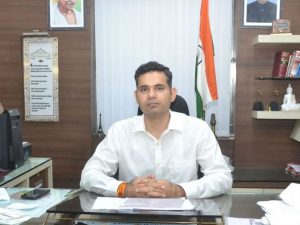
Shri Avinash Lavania, IASCollector & District Magistrate

ABOUT DISTRICT
AT A GLANCE
Area: 285.9 Sq. Km .Population: 1798218Male: 936168 Female: 862050 Language: Hindi, Villages: In Berasia Tehsil 304 vilaages and Huzur tehsil 218 villages
Call Centre : 104, 181 District Call Centre : 07582-264390, 07582-242831
Demography As per Provisional population figures of 2011 Census, the total no of Mandals are 64. Area 285.9 Sq Km
No. of Revenue Disivions- 7 No. of erstwhile Taluks- 19
No. of Revenue Mandals- 64 (62 Rural + 2 Urban) No. of Mandal Praja Parishads- 62
No. of Gram Panchayats- 1069 No. of Municipalities- 7
- of Municipal Corporations- 2
- of Census- 14
- of Villages- 1681
Notable people
- Gopal Bhargava, Indian politician
- Govind Namdev, Television and film actor
- Hari Singh Gour, pleader, jurist, parliamentarian, social reformer
- Mahendra Mewati, Theatre and film actor
- Mukesh Tiwari, Theatre and film actor
- Virendra Kumar Khatik, Indian politician

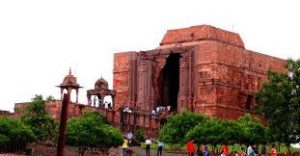



Methodology: Group Discussion, PRA / PLA
Our mapping process is participatory learning appraisal. We are doing transect walk in our all site’s & we create a good Environment to make easy our Resource Mapping and Social Mapping. We have 250 PSH, SSH, ESH to give information about resource & location for mapping.
AREA MAP – Social mapping
This option is used to help identify households using pre-determined indicators that are based on socio-economic factors. It works to determine a relative ranking of socio-economic status of the household rather than an absolute ranking. It can help determine which households are benefiting from an assessment and whether or not they belong to the target group.
Social mapping is an option to identify households based on predefined indicators relating to socio-economic conditions (e.g. status, skills, property, education, income, etc.). The population’s wellbeing is then ranked (by those living there) according to which household is better or worse off in terms of the selected indicators. This option therefore results in information about households’ relative wellbeing, rather than an absolute assessment.
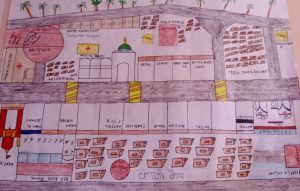



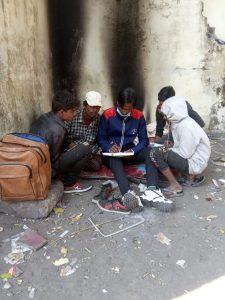
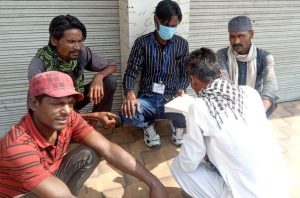



Target Group: Vulnerable young population prone to substance use and using substances in select.
- Objectives
- a) To reduce substance use in the community.
- b) To protect and promote human and youth rights.
- c) To ensure that services are accessible, community based and differentiated along a continuum of
care including psychosocial support for substance users, their primary caregivers and families.
- d) To conduct outreach activities among vulnerable young population in the community for
prevention of substance use.
- e) To provide a safe and secure drop-in space for substance users in the community, which would have
provisions of screening, assessment and counselling.
- f) To render psycho social interventions particularly based on behavioural approaches including
Adolescent Community Reinforcement Approach, Cognitive Behavioural Therapy, Contingency
Management, Motivational Enhancement Therapy, Twelve- step facilitation therapy and Group
therapy.
- g) To provide referral and linkage to treatment, care and rehabilitation services for substance
dependents.








